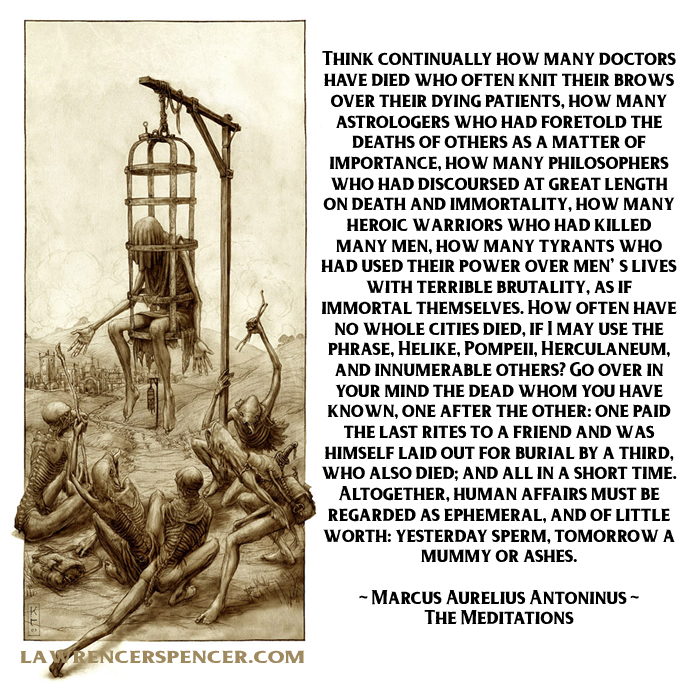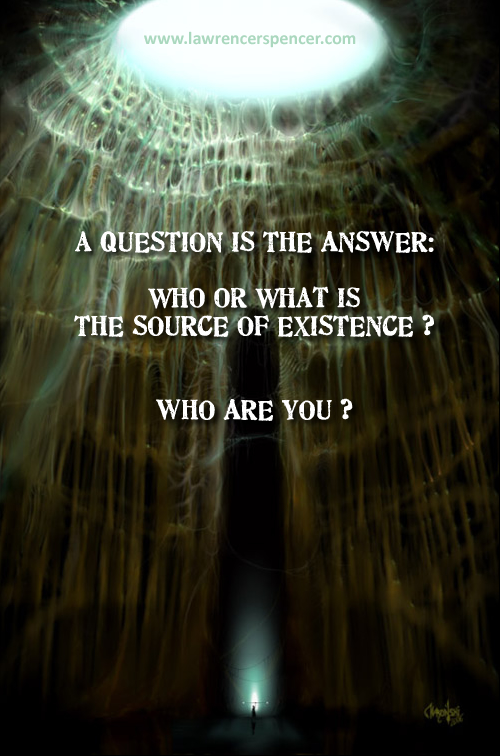Language is composed of symbols to which significance or meaning have been assigned. It cannot express the ineffable. The following article, by Esther Inglis-Arkell, illustrates the ineffability of certain concepts.
“English is so limited sometimes. There are so many kickass words in other languages, that describe concepts that we just don’t have one word for in English. And that’s a shame, because sometimes we find ourselves in situations that English just can’t describe.
Science fiction and fantasy are full of those sorts of quirky situations and concepts, in fact. Here are 10 words that have no English equivalent, and the science fiction and fantasy classics that you’d want to use them to describe.
10. Aware (Japanese)
The Meaning: Aware is a word, quite well-known, for the bittersweetness of a brief and fading moment of transcendent beauty. It’s that “last burst of summer” feel, or the transience of early spring.
The Work: The Lord of the Rings is the work that most needs this word to describe it. Sure, it’s an adventure and linguistics tale, but backing the battles is an ever-present tone. The whole point of this fantasy trilogy is a chronicling of the end of an era. The days of magic, both terribly evil and extraordinarily beautiful, are coming to an end. With destruction of the ring — the ultimate evil in the world — all the good of the dwarves and hobbits and elves retreat from the world as well, and the age of myth gives way to the more prosaic age of humans.
 9. Maya (Sanskrit)
9. Maya (Sanskrit)
The Meaning: This word is one that could be applied to a lot of protest movements and many political speeches. It refers to belief — the often unfortunate belief — that the symbol of a thing is the same as the thing itself. It’s the, “Ceci n’est pas une pipe,” of the literary world.
The Work: V for Vendetta is a work that plays with symbolism and how symbolism becomes real in the eyes of the populace. The eponymous V is armed with a mountain of symbols, from the letter and roman numeral of his name to a particular kind of rose to London buildings to the Guy Fawkes mask that he always wears. Whether this mistaken belief — that a guy playing around with cops and bombs can free a whole country — would actually lead to the kind of sweeping social change depicted in the book is up to you to decide.
8. Wei-wu-wei (Chinese)
The Meaning: Wei-wu-wei is conscious nonaction. It’s a deliberate, and principled, decision to do nothing whatsoever, and to do it for a particular reason.
The Work: Zone One, by Colson Whitehead is the non-action zombie novel. Leaving aside stupid comparisons in reviews that shall remain linkless, it is an understandably frustrating book. The narrative meanders through the current clean-up job, past wanderings, and extended social commentary of a man in a post-apocalyptic zombie wasteland. It’s light on action and heavy on description and sustained metaphor. Whether you think this is a good thing or a bad thing, you know it’s a deliberate thing. Our own Charlie Jane Anders review of the book states, “you get the sense, after a while, that Whitehead is deliberately trying to deny the reader any feeling of narrative satisfaction, through denseness and obfuscation.” It’s a definite wei-wu-wei novel.
 7. Bricoleur (French)
7. Bricoleur (French)
The Meaning: A bricoleur is someone who starts building something with no clear plan, adding bits here and there, cobbling together a whole while flying by the seat of their pants.
The Work: Oh, golly. We can all think of at least five different series that were worked on by some real bricoleurs, can’t we? But I’d have to say that Lost is the most recent, and the most startling, one of them. They seemed to be making it up since the beginning and hoping no one noticed. Bricoleurs don’t always make a shamble of things. The word can also refer to someone whose loose and improvisational style leads to an inventive and engaging whole. Doctor Who, in its continuous broadcasting under many different creative directors, can be said to be a, um, bricolage? And the series has built an engaging world with something for everyone.
6. Schlimmbesserung (German)
The Meaning: A schlimmbesserung is a supposed improvement that makes things worse. There are actually a lot of words for this in a lot of languages, and that makes me think that English needs to get on the ball and coin a native word for this concept. Everyone needs it.
The Work: Did people want the ‘first’ episodes in the Star Wars series? You bet they did. Did they need them? Debatable. Did that new-old trilogy add anything to what was already there? No. Quite the opposite. And you could say the same for the many re-released CGI upgrades that the original movies received over the years. Some things shouldn’t be improved. Or at least, certainly not in the way they were.
5. Orenda (Huron)
The Meaning: Orenda is the invocation of the power of human will to change the world around us. It is set up to be the opposing force to fate or destiny. If powerful forces beyond your control are trying to force you one way, orenda is a kind of voiced summoning of personal strength to change fate.
The Work: For me, the most interesting part of the Matrix Trilogy was the part that can be described by orenda. I wasn’t too impressed by the first movie’s reveal of Neo as the chosen one, or the idea of all of reality being fake. What I liked was when we got to the second movie, and all that ‘chosen one’ stuff fell victim to the power of predictability and statistics. Neo wasn’t the chosen one. He was a familiar protocol, and he and his fellow humans would obey the dictates of that protocol. Changing that, and the moment when he went from embracing his ‘destiny’ to fighting it, was the point of the series, I thought.
 4. Gâchis (French)
4. Gâchis (French)
The Meaning: This one means ‘a wasted opportunity.’ Specifically it means an opportunity that was wasted by ineptness being hurled at it from all directions.
The Work: Sounds like the on-air run ofFirefly to me. I’m not among those fans who think that Firefly would have been a runaway success. It was a risk. It was a niche genre in a niche genre. Still, it seems like jumbling up the episodes and airing them, you know, whenever, was a bad way to handle an original concept.
3. Weltschmerz (German)
The Meaning: It could be termed world-weariness or ennui, but this particular has the quirk of almost only being applied to privileged young people.
The Work: Can anyone place the follow lyrics: Life can’t be easy/ It’s not always swell./ Don’t tell me truth hurts, little girl./ ‘Cause it hurts like hell. The fact that this was sung to, and about, a fifteen-year-old LARPing suburbanite with a room over-crowded with toys, a closet full of costumes, and a loyal pure-bred sheep dog makes Labyrinth the perfect movie to embody this word. What makes it even better is it is a call for such people to grow up and be more mature, all the while adding in enough dramatic elements that real-life people in the same situation (and let me reluctantly raise my hand, here) felt that it really spoke to them. I still love Labyrinth. It’s a fun and well-done movie. But it definitely resonated with a certain demographic.
 2. Kalpa (Sanskrit)
2. Kalpa (Sanskrit)
The Meaning: Time passing on a cosmic scale
The Work: That’s what 2001: A Space Odyssey is all about. Everything, from the music to the subject matter to the deliberate invocation of shapes and symbols as a way of signalling both change and continuity, was meant to show how the ‘cosmic’ passage of unimaginable amounts of time. Since we’re now well past 2001, perhaps Kalpa would have been a better title for the movie, and novel, in the first place. But who knew – for sure – that it had that kind of staying power?
1. Razbliuto (Russian) Update: Or English!
The Meaning: This word, pronounced ros-blee-OO-toe, describes the feeling that a person (generally meant to be a man) has for the person who he once loved, but now no longer loves.
The Work: Take your pick. I have my eye on a few big franchises nowadays that I think will cause a lot of people some razbliuto in a few years. Maybe even a few months. For me personally, though, I suppose I’ve come full circle to The Lord of the Rings. I adored it at one age, and read it over and over on car trips and at school under the desk, and late at night with my room light being switched off – not at all sneakily, I’m sure – whenever my parents came by. And while I respect the work and world-building that went in to it, I have no desire to pick it up ever, ever again. I didn’t even see the movies. And there’s a reason why I added the pronunciation guide to this particular word. I think it needs to get in to circulation in general, since everyone knows the feeling of loving a story at one particular time in their life, and then that love falling away. But I suspect this kind of feeling is particularly strong in sci-fi and fantasy fans. These works don’t just offer a book to love, but an entire world to immerse oneself in, with every character, situation, and story a shining possibility. The stories in these genres can mold themselves to people’s inner lives more than realistic fiction can. But inner lives change, and the things that fill us with joy and inspiration at one point in our lives simply aren’t relevant at other points. While there are plenty of sci-fi and fantasy stories that endure, there are many that drop away as we change. There are some former Ann Rice fans out there who have something to say to Twilight fans. There are people who love Xena who have something to say to fans of Katniss. But to say it, they have to know the word. So say it with me: ros-blee-OO-toe.”
THIS IS A REPOST OF AN ARTICLE BY Esther Inglis-Arkell, from the book They Have a Word for It by Howard Rheingold, via io9



 9. Maya (Sanskrit)
9. Maya (Sanskrit)

 2. Kalpa (Sanskrit)
2. Kalpa (Sanskrit)


